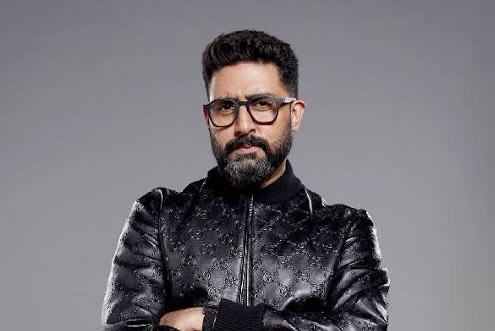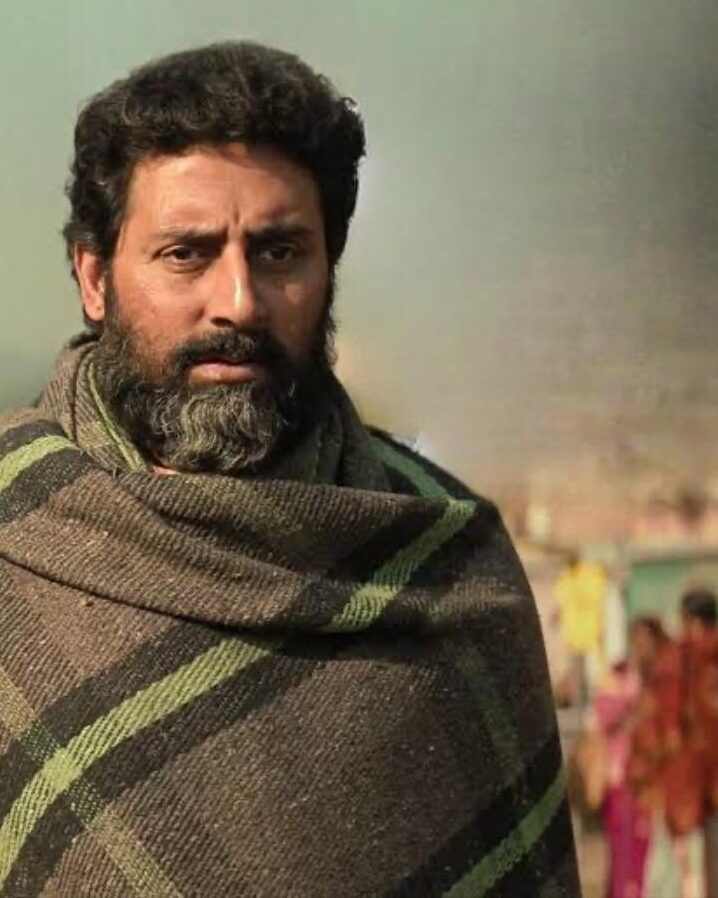At a time when most actors chase reinvention, Abhishek Bachchan seems to be living it quietly and confidently. In an exclusive conversation with The Pioneer, the actor reflects on his evolving relationship with cinema—from shedding vanity in intense roles like Kaalidhar Laapata to rediscovering joy alongside young talent like Davik in Be Happy. Abhishek shares his admiration for director Madhumita’s emotional precision and reveals why he’s now ready to return to the rhythm of commercial films, embracing every beat of dance, action, and storytelling with renewed excitement

“When I started out in the early 2000s, vanity wasn’t just a thing—it was one of the main things. How you looked, your makeup, your body, your clothes—it all mattered. But that’s still true to some extent today; we have to acknowledge that it’s an audio-visual medium. However, with time and experience, you begin to empower yourself to go without that armor. Vanity becomes a crutch, and eventually, you learn to let it go.“
Tejal Sinha
Abhishek Bachchan has never been one to follow the predictable path. From intense, layered portrayals in films like Guru and Manmarziyaan to more unconventional roles in experimental projects like Ludo, his journey reflects that of an actor constantly reinventing himself. Over the years, he has embraced a steady shift—from mainstream stardom to intimate, character-driven storytelling—choosing roles that offer emotional complexity over formulaic appeal.
In a candid and reflective conversation with The Pioneer, the Housefull 5 star opens up about what drives this evolution, the joy and surprise of working with young talent like Davik in Be Happy and his experience stepping into the emotionally raw world of Kaalidhar Laapata, streaming on Zee5. He speaks about the liberation that comes from shedding vanity on screen, the changing expectations of audiences and how, at this stage in his career, he’s finding renewed satisfaction in stories that are quieter, more personal and far more resonant.
Reflecting on his recent projects Ludo and Be Happy, the actor opened up about what it’s like working with someone significantly younger—and the unique spark that came with sharing scenes with child actor Davik.
“Davik and I had an instant connection (he grins from ear to ear). He’s from Bhopal, and my nani’s house is in Bhopal too, so we had that common thread from the beginning.” But what truly stood out for him was the sheer professionalism and talent the young boy brought to the set. “The kid is brilliant,” he continues, “He does theatre with his father and is incredibly talented. At such a young age, you don’t really expect actors to come prepared—you expect you’ll have to manage them on set. But Davik knew all his scenes, his dialogues and was fully open to Madhumita’s direction.”
The film, shot when Davik was just around eight or nine years old, demanded a level of emotional understanding and delivery that could be challenging for even seasoned actors. “To remember everything and deliver it with such clarity was amazing. I thoroughly enjoyed working with him—he’s just a firecracker, great fun, always smiling. He has a bright future ahead of him.”
Beyond the joy of working with younger co-stars, the Bunty aur Babli actor spoke thoughtfully about how his own relationship with the industry and image has evolved. His role in Kaalidhar Laapata which is stripped of vanity and ego, marks a significant departure from the glitz and glamour often expected in mainstream cinema. But, as he reflects, vanity once held a much stronger hold.
“When I started out in the early 2000s, vanity wasn’t just a thing—it was one of the main things. How you looked, your makeup, your body, your clothes—it all mattered. But that’s still true to some extent today; we have to acknowledge that it’s an audio-visual medium. However, with time and experience, you begin to empower yourself to go without that armor. Vanity becomes a crutch and eventually, you learn to let it go.”
It’s a confidence that only years in the industry can bring. “Right now, I’m in a different mind space altogether. I’m looking forward to jumping back into commercial cinema again—doing songs, dance, action—the fun stuff. But there was also a phase where I consciously chose projects that were quieter, more intimate, deeply personal. I wanted to explore depth of character. I did a couple of films like that and I thoroughly enjoyed them. But now, I don’t feel the need to look a certain way to play the protagonist. That pressure is off.”
When speaking about director Madhumita, who helmed one of his recent project, Kaalidhar Laapata, streaming on Zee5, there’s clear admiration in his voice. “Madhumita is a very particular director,” the Dostana actor notes. “Her attention to emotional detail is wonderful and it really reflects on screen. If it’s an emotional scene, it’s not just about crying and moving on—she’s very specific about the kind of emotion she wants and that’s how she builds her characters.”

The result, he says, is a layered, deeply engaging film that lingers with the audience long after the credits roll. “I had an amazing time working with her,” he says warmly.
As Abhishek Bachchan continues to navigate the ever-shifting landscape of Indian cinema, what stands out is his unshakeable commitment to growth—not just as an actor, but as a storyteller willing to embrace vulnerability, reinvention and risk. Whether it’s through nurturing the spark of a young co-star, shedding the weight of image or surrendering to a director’s emotional precision, he is clearly in a phase where content leads the way. With a renewed excitement for both mainstream flair and meaningful narratives, he’s poised at a point in his career where he no longer seeks validation—just a good story told well. And in doing so, he reminds us that reinvention isn’t a trend, but a quiet, continuous act of courage.



